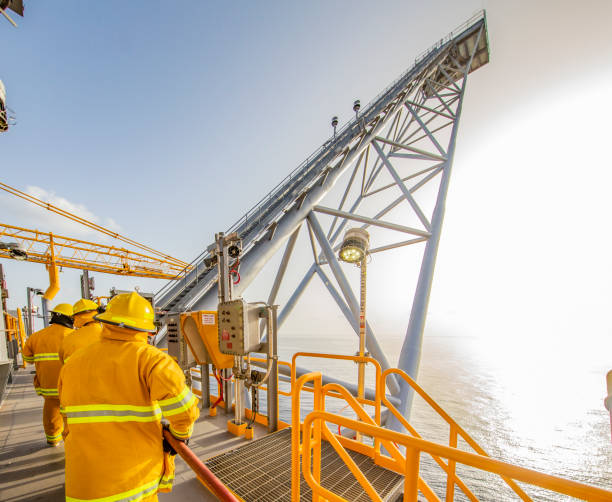What do public utilities jobs pay? When considering a career path in the public utilities sector, one crucial aspect to explore is the potential salary range associated with these jobs.
Public utilities play a vital role in providing essential services such as electricity, water, natural gas, and telecommunications to the public.
From power plant operators to water treatment technicians, a wide array of positions exists within this industry, each with its own compensation structure.
Understanding what public utilities jobs pay is crucial for individuals seeking employment in this sector or those looking to negotiate fair salaries.
This knowledge helps job seekers make informed decisions about their career choices and enables current professionals to gauge their worth within the industry.
Moreover, comprehending the compensation landscape can shed light on the industry’s competitiveness, growth opportunities, and potential for financial stability.
In this article, we will delve into the world of public utilities job pay.
By gaining a comprehensive understanding of what public utilities jobs pay, you will be better equipped to navigate your career path and make informed decisions about your professional future.
Also Read:
What Do Consumer Services Jobs Pay?
How Many Jobs Are Available in Public Utilities?
What Do Public Utilities Jobs Pay?
Public utilities jobs encompass a diverse range of positions that contribute to the provision of essential services such as electricity, water, natural gas, and telecommunications to the public.
The compensation for these jobs varies depending on several factors, including job role, experience, education, geographic location, and the specific utility company.
In general, public utilities jobs offer competitive salaries that reflect the significance and responsibility associated with maintaining critical infrastructure and delivering essential services.
Entry-level positions, such as meter readers or customer service representatives, may have lower starting salaries, typically ranging from $25,000 to $40,000 per year.
However, as individuals gain experience and advance within their careers, their earning potential increases significantly.
Higher-level positions within public utilities, such as engineers, technicians, and managers, tend to command higher salaries due to their specialized skill sets and leadership roles.
Salaries for these positions can range from $60,000 to well over $100,000 per year, depending on factors such as experience, education level, and the size of the utility company.
It is important to note that salaries can also vary based on geographic location.
Utilities operating in areas with higher costs of living or greater demand for their services may offer higher salaries to attract and retain talent.
Beyond base salaries, public utilities jobs often come with additional benefits and perks.
These can include health insurance, retirement plans, paid time off, and opportunities for professional development and career advancement.
Overall, while the salaries of public utilities jobs vary depending on factors such as job role, experience, education, and geographic location, they generally offer competitive compensation packages that reflect the importance of the services provided and the expertise required.
Aspiring professionals in the public utilities sector can find rewarding and financially stable careers with opportunities for growth and advancement.
Education and Experience Requirements for Higher-Paying Public Utilities Jobs
Higher-paying public utilities jobs often require a combination of education and experience to meet the specialized demands of the industry.
A bachelor’s degree in engineering, environmental science, or a related field is often a prerequisite for positions such as engineers or managers.
Advanced degrees, such as a master’s or Ph.D., can provide a competitive edge.
Additionally, relevant certifications or licenses may be required for certain roles.
Experience plays a crucial role in securing higher-paying positions, with employers often seeking candidates with a demonstrated track record in the utilities industry.
Hands-on experience, internships, and on-the-job training are valuable assets for individuals aspiring to secure well-compensated positions in public utilities.
Benefits and Perks of Working in the Public Utilities Industry
Working in the public utilities industry offers numerous benefits and perks that enhance job satisfaction and attract talented professionals.
One key advantage is job stability, as public utilities provide essential services with consistent demand.
Employees often receive competitive salaries, comprehensive healthcare packages, retirement plans, and generous paid time off.
Many utility companies prioritize work-life balance and offer flexible schedules or remote work options.
Professional development opportunities, such as training programs and tuition assistance, are commonly available.
Furthermore, public utilities may offer employee discounts, wellness programs, and opportunities to contribute to the community through initiatives like environmental conservation.
These benefits make the public utilities industry an attractive choice for individuals seeking rewarding careers with valuable perks.
Career Growth Opportunities in Public Utilities Jobs
Public utilities jobs provide ample opportunities for career growth and advancement.
As professionals gain experience and acquire specialized skills, they can progress through the ranks and assume higher-level positions within the industry.
Advancement may involve moving into managerial or supervisory roles, taking on additional responsibilities, or leading projects.
Public utilities also frequently invest in employee development, offering training programs, mentorship opportunities, and support for continuing education.
Additionally, the industry is continuously evolving, with advancements in technology and sustainability driving the need for skilled professionals.
This creates a favorable environment for career growth, where individuals can expand their expertise and take on new challenges to build fulfilling and prosperous careers in public utilities.
Also Read:
What Do Consumer Non-Durables Jobs Pay?
How Many Jobs Are Available in Consumer Services?
Conclusion
Understanding the pay scale of public utilities jobs is essential for individuals considering a career in this sector.
Salaries in public utilities vary depending on factors such as job role, experience, education, and geographic location.
However, overall, public utilities jobs offer competitive compensation packages that reflect the significance and responsibility associated with providing essential services to the public.
With opportunities for career growth, additional benefits, and stability, public utilities can be a rewarding industry to pursue a career in.
By gaining a comprehensive understanding of what public utilities jobs pay, individuals can make informed decisions about their professional path and strive for financial stability and growth within this vital sector.







2 comments